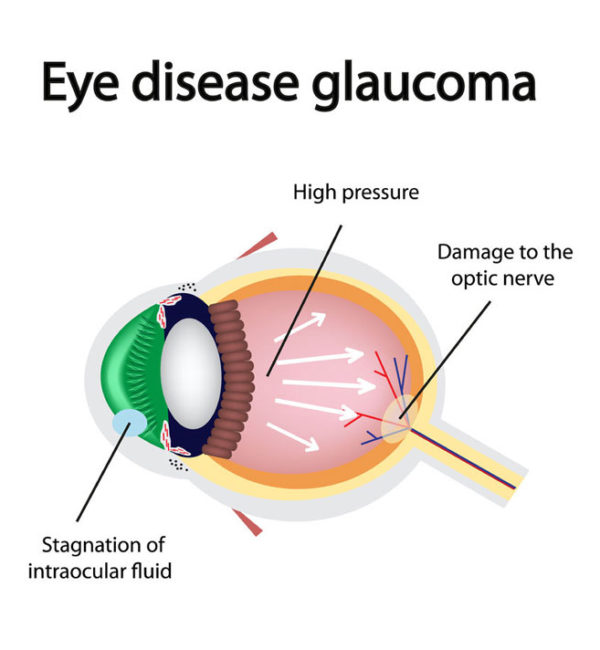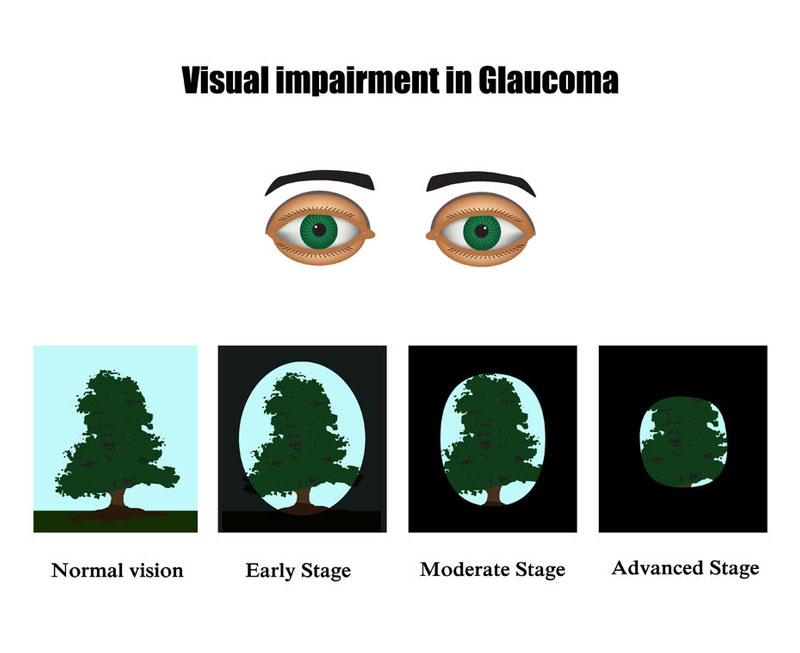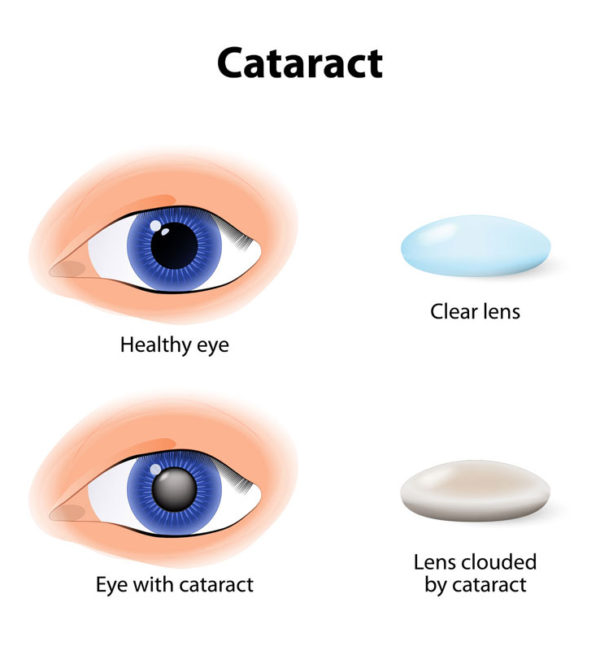Glaucoma and Cataracts

Glaucoma
Glaucoma is often called the silent thief of sight. It is actually a group of eye diseases that lead to progressive damage of the optic nerve (the bundle of nerve fibres that carries information from the eye to the brain), which can then lead to vision loss and possible blindness.
Worldwide, it is estimated that about 66.8 million people have visual impairment from glaucoma, with 6.7 million suffering from blindness. Vision experts estimate that half of those affected by these eye conditions may not be aware they have glaucoma because often symptoms do not occur during the early stages of the disease.
Glaucoma Symptoms
- Hazy or blurred vision.
- The appearance of rainbow-coloured circles around bright lights.
- Severe eye and head pain.
- Nausea or vomiting (accompanying severe eye pain)
- Sudden sight loss.

What Should I Do To Prevent Getting Glaucoma?
You can’t prevent getting glaucoma, but you can protect yourself from the damage caused by glaucoma through regular routine eye examinations. Regular eye checks will ensure early diagnosis and prompt treatment should you require it. Routine eye examinations are especially important for people with a family history of glaucoma or are over 40 years old. Today’s eye care treatments are very effective at preventing or slowing the progression of any further glaucoma damage and preserving your vision.
Treatments for Glaucoma
Treatment can save remaining vision, but it is not able to restore sight already lost from glaucoma which is why it is so important that glaucoma is spotted early. See us for regular eye tests: we take your eye care seriously and do should you.
Regular Eye Exams
Early detection improves the outlook for successful treatment of glaucoma. Our Auckland optometrists recommend a regular eye examination every 2 years for healthy adults. After the age of 65, more frequent exams are a wise precaution to maintain good eye care and to ensure early diagnosis and treatment of sight threatening conditions such as glaucoma, age-related macular degeneration (ARMD) and other eye conditions.
Book an eye test by calling a Newmarket optometrist on 09 522 1283 or a Henderson optometrist on 09 836 1731. Free parking is available at Newmarket and both optometry practices are open six days a week.

Cataracts
A cataract is the clouding in the lens of your eye. Normally, light passes through the clear lens and is focused onto the retina. However, the natural aging process can cause the lens to become cloudy. The cataract or cloudy lens blocks the passage of light through the eye and causes distorted or blurred vision, glare, or difficulty seeing in poor lighting conditions. It is estimated that 50 percent of people older than 65 will develop cataracts or varying degrees. As the cataract grows, it often changes your glasses prescription and new glasses may be required for clearer vision.
Treatment
Due to the slow progressing nature of cataracts, your optometrist may initially monitor your eye over a period of time to determine the speed of progression before intervening. New prescription glasses may be prescribed to optimise your vision. As the cataract progresses, your optometrist may recommend a referral to an eye specialist for treatment. The treatment may involve a surgical procedure to remove the cataract (the cloudy lens) and replacing it with an artificial lens (intra-ocular lens).
How can I protect my eyes from cataracts?
Wearing sunglasses and a hat to block UV sunlight is important for all-round eye care and may help to slow down the progression of a cataract. Ultraviolet light is a known catalyst for their formation. Other studies point to people with diabetes as a higher risk group for cataract development. Cigarettes, air pollution, heavy drug usage and severe alcohol consumption may also contribute to your chances of developing cataracts. Some researchers believe consuming green leafy vegetables, fruit and other foods with antioxidants can help prevent cataracts.
At John O’Connor we take your eye care seriously.
If you are age 40 or older, you should have a comprehensive eye exam with an optometrist at least every one or two years. Your optometrist can check for signs of age-related macular degeneration, cataracts, glaucoma, and other eye conditions. Early treatment for many eye diseases may save your sight.
Book a consultation with your optometrist by calling 09 522 1283 or 09 836 1731.
We deliver peace of mind about the way you see the world, your sight.
We offer high quality eyecare and friendly service at our optometry practices in Newmarket and Henderson. For your convenience both stores are open 6 days a week.
